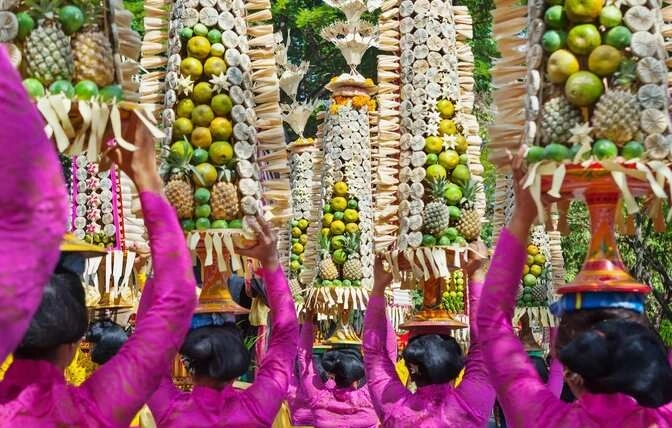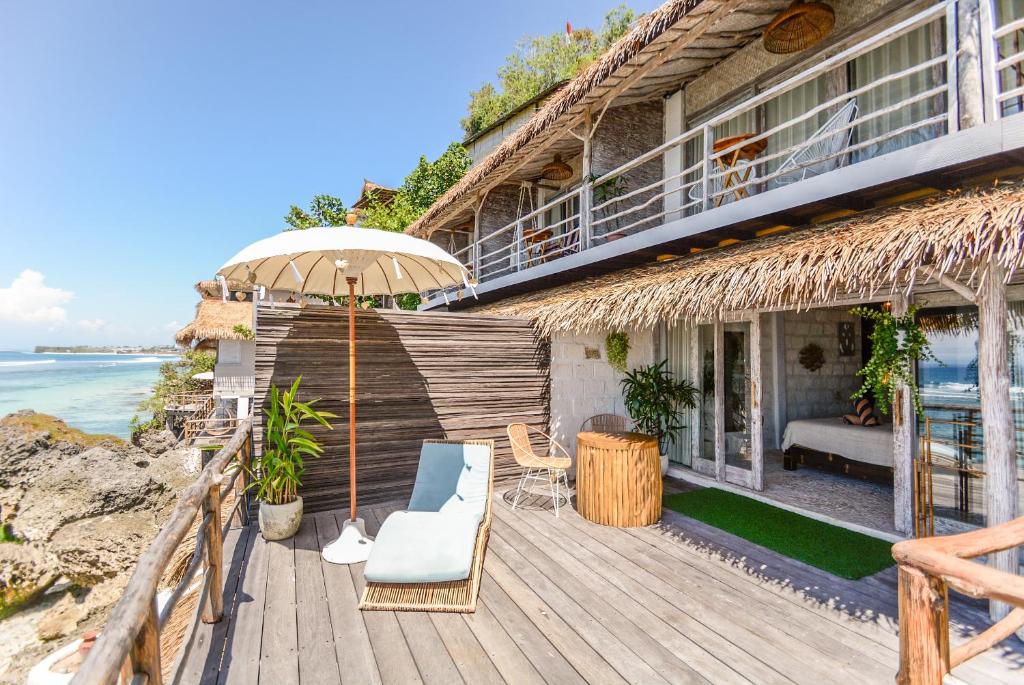

Each year, Bali grinds to a halt for 24 hours to celebrate Nyepi (day of silence), the Balinese New Year. In contrast to the boisterous celebrations common to New Year's celebrations globally, Nyepi is a day of silence, contemplation and spiritual rejuvenation. The island, with its intense energy and tourist bustle, becomes a peaceful retreat as stores close, streets are deserted and even the airport closes down. Nyepi this year falls on the 29th of March 2025.
The significance and meaning of Nyepi
Nyepi (day of silence), a festival that is observed in Bali on the Hindu Saka New Year, is firmly established in Balinese Hindu tradition. It is a period of self-reflection, meditation and cleansing. The central philosophy of Nyepi is to purify the island of evil energies and return the universe to harmony with man, nature and the divine. Through a complete day of silence, Balinese hope to deceive evil spirits into believing that the island is uninhabited, and thus avert bad fortune in the new year.
The preparations for Nyepi
The days leading up to Nyepi are filled with unique and symbolic rituals:
Tawur Kesanga (Ogoh-Ogoh Parade): At nightfall before Nyepi, large demon effigies known as Ogoh-Ogoh are taken through the streets with the help of blaring music and shouting. These odd creatures represent evil spirits and unwanted things that have to be exorcised. The creatures are then torched at the parade's conclusion to represent purification and the victory of good over evil.
Melasti (ritual purification): Prior to Nyepi, three days earlier, Balinese Hindus purify the holy objects taken from temples and moved to rivers or the ocean. The rite signifies purging impurities as well as evacuating malignant energy.
Ogoh Ogoh
Ogoh-ogoh is among the Balinese traditions to greet the celebration of the holy day of Nyepi. The Ogoh-ogoh tradition that is carried out prior to the celebration of Nyepi, has history and meaning. The term ogoh-ogoh is derived from the Balinese term "ogah-ogah", meaning something shaken.
The significance of ogoh-ogoh portrays negative human nature. Ogoh-ogoh also portrays religious values and sacred time-space according to religious texts. In addition, Ogoh-ogoh is an artistic creation conveyed through expressions of beauty and unity.
Ogoh-ogoh is typically conducted in the form of a parade or march. The Parade has a philosophy that demands individuals to guard one another's nature and resources so as not to harm the surrounding environment.
The ogoh-ogoh parade is performed by parading around the village or stage. People parading normally consume wine to represent the evil character of man. The burden being carried during the parade culminates in the burning of the Ogoh-ogoh until exhausted. The parade continues from late afternoon to night. The best places to go and witness the parade are: Patung Catur Muka (Denpasar), Plaza Renon (Denpasar), Jalan Cok Agung Tresna (Denpansar), Sanur Area (Sanur), Legian Area (Kuta), Nusa Dua-BTDC-ITDC (Nusa Dua) and Ubud.
The Nyepi rules
For 24 hours, between 6am and 6am the following day, the Balinese have four principal restrictions called Catur Brata Penyepian:
Amati Lelanguan (No Entertainment or Pleasure) – No music, TV or other diversion.
Amati Geni (No Fire) – This also means no use of lights, electricity, or even cooking.
Amati Karya (No Work) – Business and routine stop.
Amati Lelungan (No Travel) – The roads are empty as no one is permitted to go out of their house or hotel.
Even visitors are supposed to abide by these regulations while residing in hotels where few services are offered. The whole island is quiet, providing a unique chance for profound meditation and contemplation.
The day following Nyepi: Ngembak Geni
Following a complete day of silence, Nyepi is succeeded by Ngembak Geni, a day of reconciliation and social reunion. Friends and families pay visits to one another, approach each other for reconciliation and begin the new year with a fresh attitude of harmony.
Enjoying Nyepi as a tourist
Tourists who visit Bali during Nyepi get to experience the island in a way they never do any other time of the year. Though the restrictions are challenging/difficult for some, most find the experience very relaxing and peaceful. Hotels provide special arrangements for the guests, such as silent dinners and indoor activities. The absence of light pollution at night also provides breathtaking views of the starry sky. Need some additional inspiration for place to visit during your stay? Here you can read more about places you should visit while in Bali.

